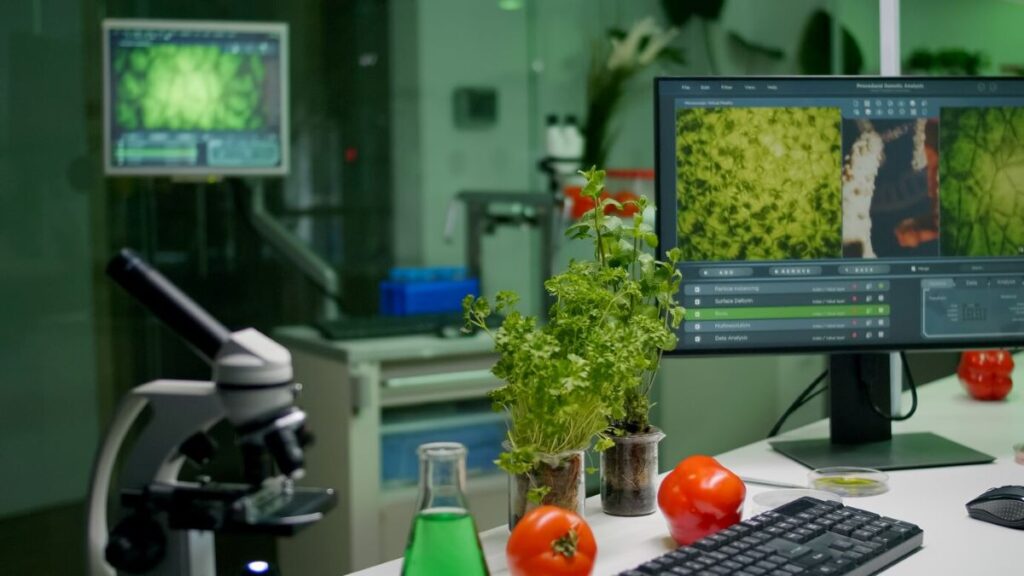Small food businesses face increasing pressure to maintain rigorous food safety standards whilst managing operational costs. Food safety inspection software emerges as a transformative solution, changing how these businesses handle compliance, inspections, and safety protocols.
Digital solutions streamline critical processes for:
- Food service establishments
- Small-scale manufacturers
- Local grocery stores
- Catering companies
- Food retail outlets
The implementation of food safety software brings substantial advantages through automated record-keeping, real-time monitoring, and comprehensive data management. These digital tools enable small businesses to maintain high safety standards, meet regulatory requirements, and protect their brand reputation.
The adoption of food safety inspection software represents a strategic investment for small food businesses seeking to:
- Enhance operational efficiency
- Ensure consistent compliance
- Reduce manual paperwork
- Improve data accuracy
- Streamline inspection processes
This technological advancement marks a significant shift from traditional paper-based systems to sophisticated digital solutions that safeguard both business interests and public health.
Understanding Food Safety Inspection Software
Food safety inspection software is a digital evolution in food safety management, transforming traditional paper-based systems into streamlined digital solutions. These sophisticated platforms integrate multiple components:
1. Digital Documentation Systems
- Real-time record keeping
- Automated compliance tracking
- Instant access to historical data
2. Inspection Management Tools
- Customisable inspection checklists
- Risk assessment protocols
- Non-compliance flagging systems
3. Reporting Capabilities
- Data analytics dashboards
- Compliance status tracking
- Performance metrics analysis
Modern food safety software solutions operate through cloud-based systems, allowing businesses to access critical information from any internet-connected device. The software typically includes built-in regulatory requirements and industry standards, automatically updating as regulations change.
Small food businesses can utilise these digital tools to create standardised inspection processes, maintain consistent quality control, and generate detailed audit trails. The software’s ability to automate routine tasks while maintaining accuracy makes it an essential tool for businesses seeking to enhance their food safety protocols.
Improved Food Safety and Regulatory Compliance through Software Solutions
Food safety inspection software transforms regulatory compliance from a complex challenge into a streamlined process. These digital solutions ensure adherence to critical food safety standards:
HACCP Compliance
- Automated hazard analysis tracking
- Critical control point monitoring
- Real-time corrective action documentation
FSMA Regulations
- Preventive controls management
- Risk-based safety protocols
- Supply chain verification tracking
ISO 22000 Standards
- Food safety management system integration
- Process validation documentation
- Continuous improvement tracking
GMP Guidelines
- Quality assurance protocols
- Personnel hygiene monitoring
- Equipment maintenance scheduling
The software’s built-in compliance frameworks eliminate manual interpretation of regulations. Digital checklists and automated alerts ensure staff follow proper procedures, while integrated reporting tools generate audit-ready documentation. This systematic approach reduces compliance-related errors by up to 73% and cuts inspection time by 50%.
Smart algorithms flag potential violations before they become issues, enabling proactive compliance management rather than reactive problem-solving. The software’s regulatory update feature keeps businesses current with evolving food safety requirements across different jurisdictions.
Increased Efficiency and Accuracy in Inspections with Food Safety Software
Digital transformation is changing the way food safety inspections are done, making them more efficient and accurate. With the help of automated and systematic processes, food safety inspection software is replacing manual paperwork, reducing human error, and streamlining operations.
Key efficiency improvements include:
- Real-time data capture through mobile devices
- Automated scheduling of inspection tasks
- Instant report generation and distribution
- AI-powered data analysis for trend identification
The implementation of digitised inspections enables staff to conduct thorough checks in less time. Mobile access allows inspectors to record observations directly into the system while moving through the facility, eliminating the need for double-entry of data.
Accuracy enhancements through software solutions:
- Standardised inspection protocols
- Built-in validation checks
- Photo documentation capabilities
- Digital time stamps for audit trails
AI-assisted data management helps identify patterns and potential issues before they escalate into serious problems. The software’s intelligent algorithms analyse historical data to predict maintenance needs and highlight areas requiring immediate attention, creating a proactive approach to food safety management.
Enhanced Visibility and Traceability of Food Safety Data with Software Solutions
Food safety inspection software transforms data management through a centralised digital platform. This advanced system enables small food businesses to:
- Track food safety records in real-time
- Access historical inspection data instantly
- Generate comprehensive audit trails
- Monitor compliance trends across operations
The software’s robust traceability features create detailed documentation of:
- Product movement through the supply chain
- Temperature monitoring logs
- Cleaning and sanitisation records
- Staff training certifications
- Incident reports and corrective actions
During food safety audits, businesses can quickly retrieve required documentation through the digital platform. This streamlined access reduces audit preparation time from days to hours.
In case of food safety incidents, the system enables rapid recall management by:
- Identifying affected products
- Tracking batch numbers
- Documenting supplier information
- Recording distribution paths
This level of data visibility helps small food businesses maintain consistent safety standards, respond swiftly to incidents, and demonstrate due diligence to regulatory authorities.

Significant Cost Savings for Small Businesses through Food Safety Software Implementation
Food safety inspection software delivers substantial financial benefits for small businesses through strategic automation and preventive measures. The implementation of digital solutions creates measurable cost reductions across multiple operational areas:
Direct Cost Savings:
- Reduced paper and printing expenses
- Minimised food waste through proper storage monitoring
- Decreased labour costs from automated processes
- Lower insurance premiums due to improved safety records
Preventive Cost Benefits:
- Early detection of equipment malfunctions
- Immediate identification of temperature violations
- Real-time alerts for expired products
- Rapid response to potential contamination issues
The software’s predictive capabilities help prevent costly product recalls and reputation damage. Small businesses can track inventory expiration dates automatically, reducing waste and optimising stock rotation. Temperature monitoring features protect valuable ingredients by alerting staff before spoilage occurs.
Digital inspection tools eliminate manual data entry errors that lead to expensive mistakes. The automated record-keeping system reduces administrative hours while maintaining accurate compliance documentation – a critical factor in avoiding regulatory fines. You may like to visit https://beanstreamcarts.com/what-to-look-for-in-the-best-food-safety-management-software/ to get what to look for in the best food safety management software.
Robust Data Security and Management Features in Food Safety Inspection Software Solutions
Modern food safety inspection software prioritises data security through secure SaaS platforms, safeguarding sensitive business information. These platforms implement:
- Multi-layer encryption protecting data during transmission and storage
- Role-based access controls limiting data visibility to authorised personnel
- Automated backup systems preventing data loss
- Secure audit trails tracking all system activities
The software’s data management capabilities enable small businesses to:
- Store inspection records in a centralised digital repository
- Generate customised reports for different stakeholders
- Share audit findings securely with regulatory bodies
- Access historical data for trend analysis
These robust security measures ensure data integrity while maintaining compliance with industry standards. Small food businesses can confidently store sensitive information, including:
- Supplier documentation
- Temperature logs
- Employee training records
- Inspection results
- Corrective action reports
The platform’s secure architecture supports seamless collaboration between team members while protecting proprietary information from unauthorised access.
Integration with Hardware Solutions for Comprehensive Safety Management in Small Food Businesses
Food safety inspection software seamlessly integrates with essential hardware components to create a comprehensive safety management system. These integrations enhance monitoring capabilities and streamline operational processes:
Temperature Monitoring Sensors
- Real-time temperature tracking across multiple storage units
- Automated alerts for temperature fluctuations
- Historical temperature data logging for compliance records
- Remote monitoring capabilities via mobile devices
Label Printing Hardware
- Automated food labelling systems
- Accurate expiration date tracking
- Allergen information printing
- Batch code generation for traceability
Freight Temperature Tracking
- Continuous monitoring during food transportation
- GPS-enabled location tracking
- Temperature breach notifications
- Digital documentation of delivery conditions
These hardware integrations create a robust ecosystem that strengthens food safety practices. Small businesses benefit from automated data collection, reduced manual monitoring tasks, and enhanced accuracy in safety measurements. The combination of software and hardware solutions provides a technological framework that supports consistent food safety standards across operations.
Overcoming Challenges When Implementing Food Safety Software in Small Businesses
Small food businesses face specific challenges when transitioning to digital food safety systems. These obstacles require strategic planning and targeted solutions:
Staff Training Requirements
- Implementing structured training programmes
- Creating user-friendly documentation
- Providing hands-on practice sessions
- Setting up mentorship systems for new users
Data Privacy Protection
- Securing sensitive business information
- Implementing robust password policies
- Establishing data access hierarchies
- Regular security audits and updates
Common Adoption Barriers
- Initial resistance to technological change
- Limited technical expertise among staff
- Resource constraints for implementation
- Integration with existing workflows
Successful implementation strategies include:
- Phased rollout approach
- Regular feedback sessions
- Dedicated support channels
- Clear communication of benefits
Small businesses can address these challenges through proper planning and support systems. Working with software providers offering comprehensive onboarding programmes and ongoing technical support helps ensure smooth transitions. Regular assessment of implementation progress allows for timely adjustments and optimisation of the system for specific business needs.
Additionally, understanding the importance of cybersecurity in this digital transition is crucial, akin to the CMMC framework which emphasizes the need for stringent cybersecurity measures, particularly when handling sensitive data such as customer information or proprietary business data.

Choosing the Right Food Safety Inspection Software for Small Businesses
Selecting the right food safety inspection software requires careful evaluation of your business needs and the available options. Here’s a structured approach to help you make the right choice:
Key Selection Criteria:
- Industry-specific functionality alignment
- Scalability potential for business growth
- User-friendly interface for staff adoption
- Cost-effectiveness and ROI potential
- Integration capabilities with existing systems
The selection process should include scheduling discovery calls and demo sessions with potential providers. These sessions allow businesses to:
- Assess software customisation options
- Understand implementation timelines
- Evaluate support services
- Review training requirements
Essential Features to Consider:
- Automated record-keeping systems
- Real-time monitoring capabilities
- Mobile accessibility
- Compliance reporting tools
- Data security measures
A thorough evaluation of these elements helps ensure the chosen software solution aligns with operational needs and budget constraints. Small businesses should prioritise providers offering personalised guidance through the selection and implementation process, backed by reliable technical support.

